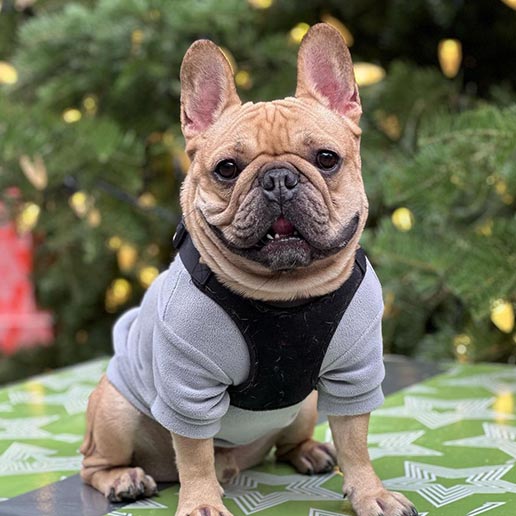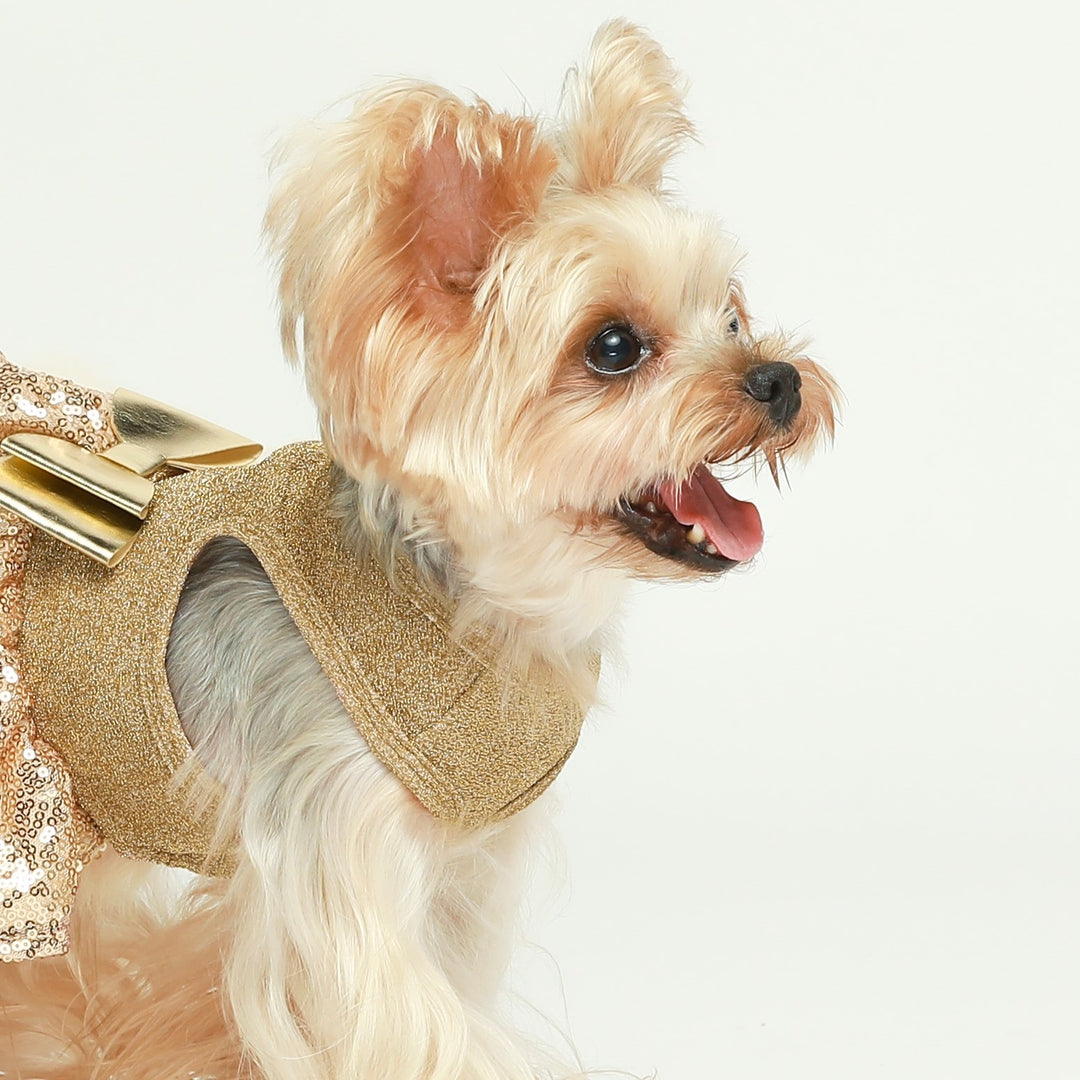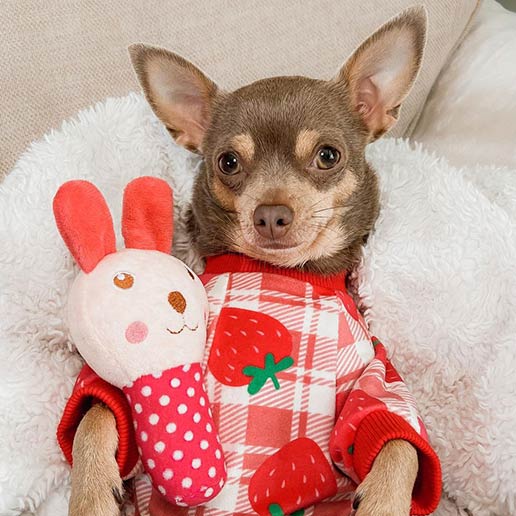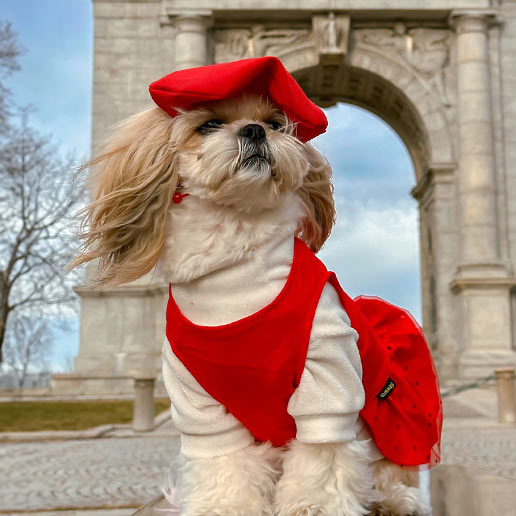How a Dog's Personality Influences Their Behavior
Just like humans, dogs possess distinct personalities that shape their behaviors and habits. From the way they interact with people to how they respond to their environment, each dog is unique in its own right. These personality traits are often influenced by factors such as breed, upbringing, and life experiences. Understanding your dog’s personality is essential for fostering a strong bond, providing appropriate care, and ensuring their overall well-being. As dog owners, recognizing these personality-driven habits allows us to better meet their needs and create a harmonious living environment.

Why Do Dogs Have Different Personalities?
Dogs develop different personalities due to a combination of factors, much like humans. These factors include:
-
Genetics: A dog’s breed plays a significant role in shaping its personality. For example, Border Collies are known for their intelligence and energy, while Bulldogs are often more laid-back and affectionate. Genetics influence not only physical traits but also behavioral tendencies that define a dog’s character.
-
Early Socialization: The experiences a dog has during its early developmental stages greatly impact its personality. Puppies that are exposed to various people, environments, and other animals from a young age tend to be more confident and adaptable. On the other hand, a lack of socialization can lead to anxiety or fearfulness.
 Instagram: iggychelseaandme
Instagram: iggychelseaandme-
Training and Environment: How a dog is raised, trained, and treated by its owners contributes to its personality development. Positive reinforcement and consistent training foster well-behaved, confident dogs, while a stressful or unstable environment can lead to behavioral issues.
-
Life Experiences: Traumatic events, changes in living conditions, or new family dynamics can influence a dog’s personality over time. Dogs that have gone through difficult experiences may become more cautious or reserved, while those in stable, loving homes often exhibit happier, more relaxed behaviors.
Understanding these factors helps us appreciate why each dog is unique and highlights the importance of tailored care and attention to suit their individual personalities.

Instagram: buenoandfelix
Different Types of Dog Personalities
Dogs can exhibit a wide range of personalities, each with its own set of social habits and behaviors. Here are some common personality types and how they influence a dog's habits:
-
The Playful Dog: Playful dogs are energetic, fun-loving, and always ready for a game of fetch or a romp in the park. They thrive on social interaction and often develop habits like bringing toys to their owners, initiating playtime, or seeking attention through playful antics. These dogs are typically very sociable and enjoy being around other dogs and people.
-
The Independent Dog: Independent dogs are more self-reliant and often enjoy spending time alone. They may not be as eager for constant attention and prefer to explore their surroundings at their own pace. Their habits might include finding a quiet corner to rest or selectively choosing when to engage with others. While they may seem aloof, they still form strong bonds with their owners but on their own terms.
 Instagram: yuromommy
Instagram: yuromommy-
The Anxious Dog: Dogs with an anxious personality are often more sensitive to changes in their environment. They may develop nervous habits such as pacing, excessive barking, or chewing on objects when they feel stressed or overwhelmed. Socially, they may be more reserved and cautious around new people or situations, preferring familiar routines and environments.
-
The Protective Dog: Protective dogs take their role as guardians seriously. They are often alert and watchful, developing habits like barking at strangers or patrolling the house. While their protective instincts are strong, they can also be affectionate and loyal to their family members, ensuring they feel safe and secure.
 Instagram: bentley.bentayga.bernedoodle
Instagram: bentley.bentayga.bernedoodleCare Tips for Dogs with Different Personalities
Each dog’s personality requires specific care strategies to ensure they are happy, healthy, and well-adjusted. Here’s how to care for dogs based on their personality type, including the importance of appropriate dog clothing:
For Playful Dogs
-
Exercise and Mental Stimulation: Playful dogs have high energy levels and need plenty of physical activity to stay healthy and happy. Engage them in interactive games like fetch, tug-of-war, or agility exercises. Mental stimulation is equally important, so consider puzzle toys, treat-dispensing games, and training sessions that challenge their minds. Regular playtime not only helps burn off excess energy but also prevents boredom, which can lead to destructive behaviors.
-
Social Interaction: These dogs thrive on social interaction and often enjoy the company of other dogs and people. Organize playdates with other dogs, take them to dog parks, or enroll them in doggy daycare where they can socialize in a safe, supervised environment. Socialization helps them develop good manners, reduces anxiety, and ensures they are well-adjusted in various situations.
 Instagram: lill_pippin
Instagram: lill_pippin-
Dog Clothing: For outdoor play, especially in colder weather, consider dog clothing like sweaters or jackets to keep them warm while they burn off energy. In colder climates, playful dogs might not realize how cold it is because they're so focused on having fun. A warm, well-fitted jacket or sweater can keep them comfortable and prevent them from catching a chill.
For Independent Dogs
-
Space and Autonomy: Independent dogs value their personal space and enjoy exploring their environment on their own terms. Provide them with opportunities to roam and investigate safely, whether in a fenced yard or on-leash during walks. While they enjoy their autonomy, it's important to engage with them regularly to reinforce your bond and ensure they don’t become too distant or aloof.
-
Comfortable Resting Areas: Independent dogs often seek out quiet, secluded spots to relax. Create cozy resting areas in different parts of your home where they can retreat when they need alone time. Ensure these spaces are comfortable, with soft bedding and a calming atmosphere. This will allow them to recharge and feel secure.
 Instagram: keainteriors
Instagram: keainteriors-
Dog Clothing: Consider comfortable, lightweight dog clothes for protection during outdoor adventures, especially if they like to explore different terrains. A breathable, durable jacket can protect them from the elements, whether it's light rain, wind, or rough terrain. This ensures they can enjoy their independent explorations while staying safe and comfortable.
For Anxious Dogs
-
Routine and Stability: Anxious dogs thrive on predictability and stability. Establish a consistent daily routine that includes regular feeding times, walks, and bedtime. Gradually introduce them to new environments and people in a controlled manner, allowing them to build confidence at their own pace. This can help reduce anxiety and prevent stress-related behaviors like excessive barking or destructive chewing.
-
Calming Techniques: Use calming aids such as soothing music, aromatherapy, or anxiety wraps to help them feel secure. Soothing music can create a peaceful environment, while essential oils like lavender can be diffused to promote relaxation. Anxiety wraps or vests, which apply gentle pressure, can provide comfort and reassurance during stressful situations, such as thunderstorms or fireworks.
 Instagram: all_cali_cuteness
Instagram: all_cali_cuteness-
Dog Clothing: Anxiety wraps or snug-fitting dog shirts can provide comfort through gentle pressure, helping to calm their nerves during stressful situations. These wraps are designed to apply a constant, gentle pressure that mimics the feeling of being swaddled, which can have a calming effect on anxious dogs. They're especially useful during situations that trigger anxiety, such as car rides, vet visits, or loud noises.
For Protective Dogs
-
Training and Boundaries: Protective dogs often feel responsible for guarding their home and family. Consistent training is essential to manage their protective instincts and ensure they understand when to be alert and when to relax. Teach them basic commands like "sit," "stay," and "leave it," and reinforce these behaviors regularly. Establishing clear boundaries helps them know when it's appropriate to guard and when to stand down.
-
Controlled Socialization: Gradually expose protective dogs to different people and environments to ensure they don’t become overly protective or territorial. Positive socialization experiences can help them learn that not every stranger is a threat. Supervised introductions to new people and dogs, along with positive reinforcement, can reduce their guarding tendencies and promote more balanced behavior
 Instagram: wakanda_shihtzu
Instagram: wakanda_shihtzu-
Dog Clothing: High-visibility vests or reflective gear can be beneficial during nighttime walks, ensuring they remain visible and safe while on duty. These dogs often take their role as protectors seriously, even during walks. A high-visibility vest or reflective jacket not only keeps them safe by making them more visible to others but also signals their role as a protective companion during walks, especially in low-light conditions.
How to Get Two Different Personalities Dogs Get Along Well?
-
Gradual Introductions: Start by introducing the dogs in a neutral environment, such as a park or a friend’s yard, where neither dog feels territorial. Keep both dogs on a leash and allow them to sniff and interact at their own pace. Monitor their body language closely to ensure that neither dog is feeling threatened or overwhelmed. Gradually increase the time they spend together before bringing them into the home.
-
Respect Their Personalities: Acknowledge that each dog has a unique personality and different comfort levels. For example, if one dog is more playful and the other is more reserved, make sure the playful dog doesn’t overwhelm the quieter one. Provide space for the more independent dog to retreat to a quiet area when needed, while ensuring the playful dog gets enough interaction and activity to satisfy their energy levels.
 Instagram: hattiemaethemorkie
Instagram: hattiemaethemorkie-
Supervised Playtime: Initially, supervise all interactions between the dogs to prevent any aggressive or overly rough behavior. Gradually increase the amount of time they spend together without direct supervision as they become more comfortable with each other. Keep play sessions short and positive, gradually extending them as the dogs get used to each other.
-
Provide Individual Attention: Ensure that each dog receives individual attention and one-on-one time with you. This prevents feelings of jealousy and helps both dogs feel valued and secure. Engage in activities that cater to each dog’s specific personality and needs, ensuring that they both feel fulfilled and content.
Respect Different Personality of Dogs
Understanding your dog's personality is key to nurturing their unique habits and behaviors. By recognizing their individual traits, you can tailor your care, training, and interaction to better suit their needs. Whether your dog is playful, independent, anxious, or protective, embracing their personality and providing the right support will lead to a happier, healthier, and more harmonious relationship. Remember, each dog is unique, and with the right approach, you can help them thrive in their own special way.

Instagram: my.man.mochi














